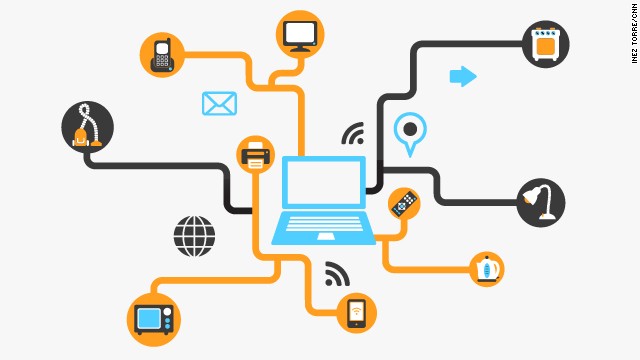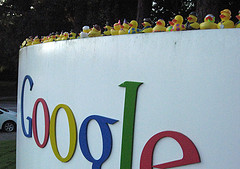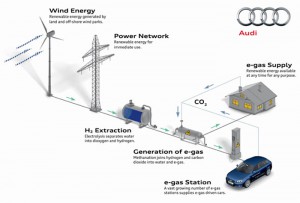Disruptive Innovation
Google says Fi is not intended to disrupt wireless carriers. No one believes it.
Google has just launched Google Fi a wireless service that switches between a carrier network and WiFi depending on signal strength. The launch Google says is not intended to disrupt phone carriers. Which maybe true it is only being rolled out on the Nexus 6 device for now. Yet if this launch is successful it will be easy to see how this can set Google up to enter the carrier market. Priced at $20 a month with a charge of $10 per gb used this would be one of the best priced carrier services especially when you consider the refunds that a consumer would get for unused Data.
As google is already a major player in the phone industry with Android, is this the next major step?
Create value for your startup

Creating value for your startup is a repetitive process that you must constantly be changing and upgrading. Long term success is achieved by constantly creating and recreating value.
To Keep Your Startup Alive, Keep Creating Value
1. Create value – obviously the first step would be to create the initial value. You need to set your product apart from all of your competitors.
2. Capture value – next you need to choose business activities that your customers are willing to pay for, but still at a high enough price where your company can remain sustainable off of the profits.
3. Renew value – this is where you see companies that appear on the surface to be doing great drop out of the market. Renewing value is the most important of the three steps for long term success. Adapting to the market you are in is very important. (think about disruptive innovation)
If you take a look at the article, it discusses what happened with Blockbuster and the rise of Netflix. It then discusses how Netflix needs to keep an eye out for HBO and CBS due to their online streaming customers. What could Blockbuster have done to prevent Netflix from capturing their customers?
Do you guys agree that the third step is where successful companies need to focus on for long term success?
What other things do you feel are important in regards to value and startups?
Autonomous Cars Are Closer Than You Think

We learned about autonomous vehicles as we were going over disruptive innovations earlier in the semester. This article is saying that within the next five years we will begin to see autonomous features in new cars. The article isn’t suggesting that these cars will be COMPLETELY autonomous yet, but more and more autonomous features will be coming out. A possible feature would be autonomous driving in traffic jams that will function based off of lane alerts. Also, there has been discussion around assisted parking.
Autonomous Cars Are Closer Than You Think
What autonomous features do you think would be most beneficial/convenient?
What features do you think will come out first?
Trillions Will Depend on Whether Driverless Cars Require Human Drivers
In the U.S more than $2.5 trillion flows through car-related industries every year. This article states that where this money will flow in the future depends on whether cars will require human drivers. The big auto companies are all pursuing strategies that augment rather than eliminate human drivers, while Google is going directly to fully autonomous cars because they believe asking a human driver who is reading or daydreaming to take over the car in an emergency will not work.
The article talks about the possibility of fleet-operated driverless taxis and how this will hurt car dealers because the fleet operators will likely go straight to the manufacturer and bypass the dealers. This would also impact the auto loans and financing industries because less people will be buying cars as well as the car rental market. The $255 billion trucking industry would be impacted because it would make companies rethink how they transport goods and it could eliminate many truck-driving jobs.
Do you think fully autonomous cars will help or hurt the economy? Do you think autonomous cars with human drivers would have less of an impact on the economy?
Disruptive IoT Innovation

In this UX Magazine article, author Avi Itzkovitch disucusses how the Internet of Things can be used to create disruptive innovations. The main point of this article talks about how connecting a device or sensors to a network is just not enough to create a new disruptive technology, but how we use the connection to our advantage to disrupt current technologies. One example he uses is under his titled section “A Lock on Added Value”. There are already technologies that allow a user to unlock one’s front door via smartphone. However, he talks about a company called August Smart Lock who added an extra functionality to their smart lock that allows the user to share a virtual key to household members or other houseguests who are visiting your home. This gives the smart lock an added value by providing a virtual network around monitoring and providing access to your house. Now this idea certainly seems to have its flaws, but it is a creative idea that could disrupt the old technology that has secured our houses for hunsdreds of years. He also states a few other examples in the article of how utilizing connected devices can disrupt current product markets. Can you think of any examples of how using already exisitng technologies that have the ability to connect to a network can disrupt current markets?
Color’s attempt to tackle at-home cancer testing on the cheap
In this article by Kara Swisher of Re/code, Color, a new at-home breast and ovarian cancer-risk screening company, is at the center of attention. The company produces $249 physician-ordered kits that screen genes that may show early mutations that lead to breast or ovarian cancers. In short, a woman orders a kit, a licensed physician reviews the order and dispatches the kit to the person’s home, a saliva sample is collected and the results are posted to a secure online portal after processing for the woman to review. The company even offers free genetic counseling so the user can better understand what the results mean. Swisher discusses how the company recently secured $15 million in funding for its venture and how the funds aim to boost Color’s growth and get the kits in the hands of more women. I think this is an awesome–and affordable–idea. I also think “minute clinics” and family doctors are going to be disrupted by this new innovation. Because women can order the kit and get the test right in their home, it takes the doctor “middleman” out of the equation, making the entire process less painful. Additionally, because this kit tests genetics, something that isn’t usually done in a doctor’s office or clinic, there is opportunity for a more robust and holistic view of the user’s health–ultimately and hopefully helping them avoid cancer altogether. I think there might be a security risk (someday) with sending genetic information through the mail, having it posted online, etc.–but when you think about it, I’m not sure there is any real value in someone stealing your cancer-risk data. So, for now, I see that as a non-issue. What do you think? Do the benefits outweigh the risks? Would you buy one of the kits?
Five Apps bringing billions of people online around the world.
Five Apps Bringing the Next Billion People Online – Digits – WSJ
This short article gives us in-site in some new emerging markets around the world. Seeing that there will still be 4 billion people in 2017 still offline should really get everything thinking how we could take advantage of this huge market place. If we do not then I fear this huge market will be a problem for us. As Arran’s article stats “The most disruptive technology is the internet.” This disruptive innovation is something that should be a concern to us as graduates. One ramification of this global disruption is loss of job security.
How does everyone view this “Bringing the Next Billion People Online?”
Most Disruptive Technology Over the Next 5 Years
In this TIME.com article, author Tim Bajarin explains that the most disruptive technology that we will experience over the next five years is not a new technology. The most disruptive technology is the Internet. He begins to talk about how the Internet will have massive disruptive global implications. He bases his argument on the fact that when you are connected to the internet, you have access to information. He then talks about how smartphone sales are projected to be about 1.5 billion in 2015 and nearly every cell phone will be a smart phone by 2018. At the same time, new wireless infrastructure being built in developing countries and the decreasing costs of cell phones will give more people access to the Internet and that this could result in major political, economical and educational ramifications. Can you think of any examples of disruptions/ramifications that can be caused in developing countries or countries with oppressive governments?
Disruptive Innovation and Education

Disruptive Innovation and Education
In this Forbes article, author Michael Horn talks about his interaction with Clay Christensen and how they used disruptive innovation to suggest ways for public schools to innovate. Horn states that the education system that we have today is, in many ways, built as a sorting system. “Those students who can’t keep up with the pace are sorted out at various intervals – an arrangement that worked fine for many in the past, but in today’s knowledge economy is no longer OK.” Horn suggested that online education is a way for public schools to cater to the individual needs that each student has instead of treating them all as if they are exactly the same. Horn also states that online education could also disrupt higher education. He states that it could severely affect some institutes a lot more than others but the ones that aren’t affected that much could adopt it as sustained innovation. Do you think that online education is more disruptive towards k-12 learning or higher education? Do you think that this could be the future of learning? Will it affect any other industries?
Fossil-free fuel from carbon dioxide? Check.
Bear with me–this is another Audi-related post. However, it’s about what fuels the cars on our roads rather than Audi’s autonomous driving innovations. In a press release by Volkswagen AG, Audi announced today that they have successfully produced their first batch of e-diesel and it has been put to use in Germany’s Federal Minister of Education and Research, Dr. Johanna Wanka’s, government-issued Audi A8 TDI. That’s great–but what does the term “e-diesel” even mean? E-diesel is a type of fuel researched heavily by Audi that is synthesized from existing atmospheric carbon dioxide, water and electricity from wind and solar sources. In short, there are no fossil fuels of any type used in the production of Audi’s e-diesel. When I read this, I began thinking of ramifications for other industries that e-diesel (once it’s ready for mass consumption) might disrupt. First, and most obviously, fossil fuel and oil giants like BP and Shell will surely try to squash this new eco-friendly superfuel because it doesn’t need any input from their giant conglomerates to power millions of diesel cars around the world. Next, I think government’s will be disrupted because of new testing that will be necessary, tax credits that might incentivize the use of e-diesel that will need to be rolled out, etc. Can you think of any other industries that might be disrupted by Audi’s innovative new fuel? Are their applications other than automobiles that the fuel might excel in?








